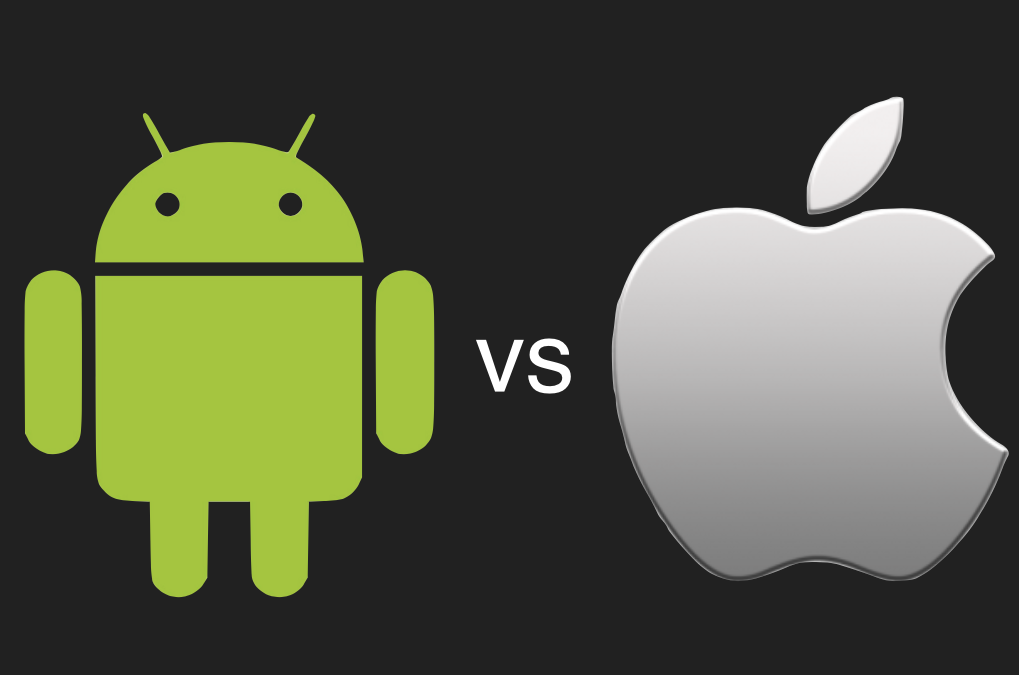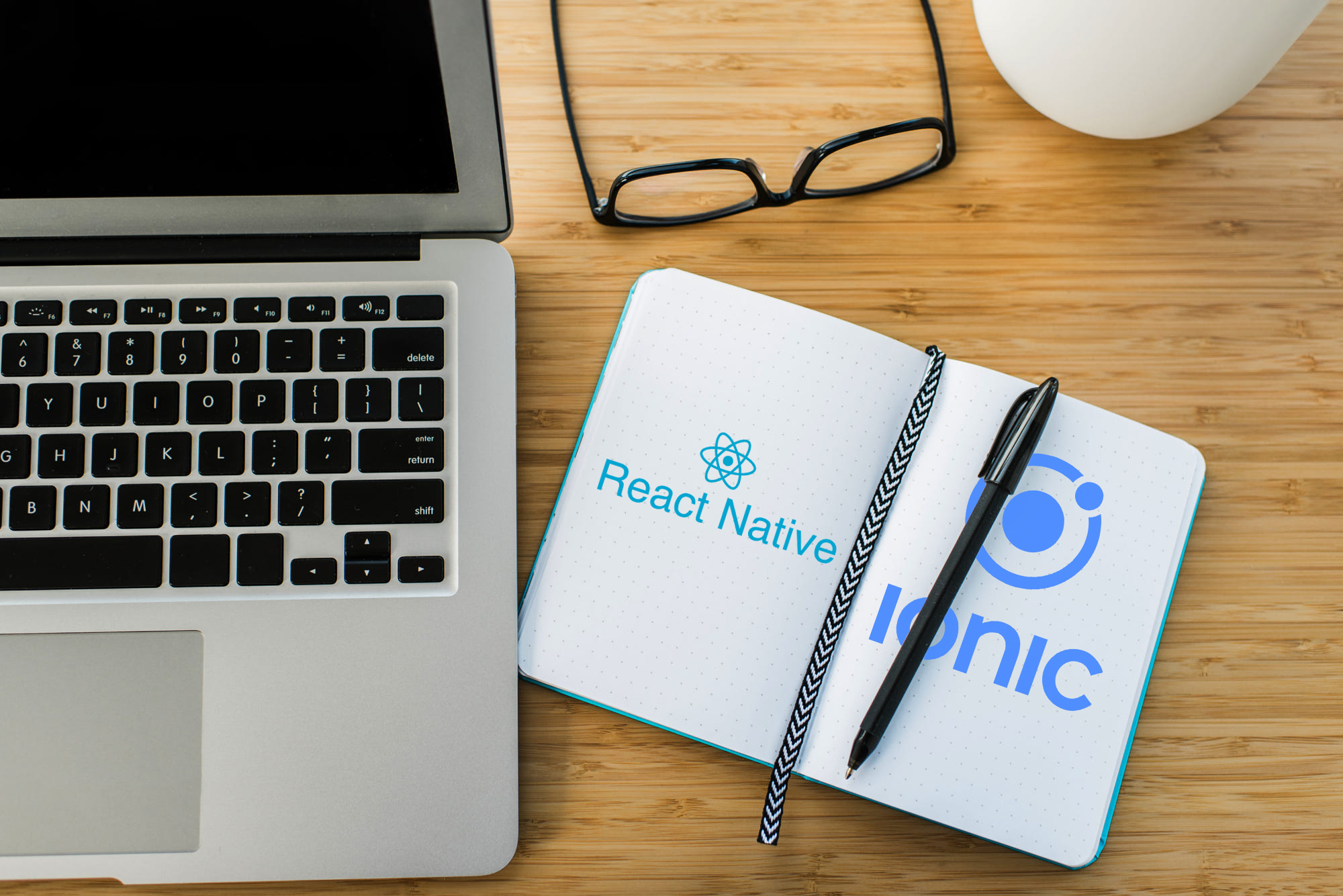Deciding to build a mobile app is exciting. When building the first version of an idea it’s always best to understand “Why” the app should be built. As we discussed in the post The Top 10 Questions You Should Ask Yourself Prior to Starting App Development there are a number of variables to consider. Several mobile app development variables we touched on include:
- Who is the target audience?
- What mobile device does the target audience traditionally use?
- How much is needed to validate the mobile idea?
Asking, and answering, foundational questions, like the ones above, will help make the process of selecting whether to begin development on Android or iOS easier. To help provide more data regarding each platform below we have highlighted who uses Android vs iOS mobile devices and applications and the pros of each platform.
Android
Q. How many published android apps are there?
A. Research completed by Statista, an online statistic company, concluded that there are 1.6 million Android mobile apps in the Google Play Store.
Q. Who is the Android user?
Steve Wozniak, Apple cofounder, says people who like phones to perform a lot of tasks and who like to use voice command functions prefer Android phones better because Android distinguishes itself by performing better in those two areas.
According to ComScore, “Android users are 10% more likely to use social media, 7% more likely access news, and 15% more likely to visit online retail sites” than the iOS user.
According to a report by Pew Research Center’s Internet & American Life Project demographics of Android users are the following:
Gender:
* Male: 31%
* Female: 26%
Age:
* 18 – 24: 43%
* 25 – 34: 40%
* 35 – 44: 33%
* 45 – 54: 17%
* 55 – 64: 17%
* 65+: 7%
Race/ ethnicity:
* White, Non-Hispanic: 26%
* Black, Non-Hispanic: 42%
* Hispanic: 27%
Education attainment:
* Less than high school: 25%
* High school grab: 27%
* Some college: 31%
* College+: 29%
Household Income:
* Less than $30,000/ year: 28%
* $30,000 – $49,999/ year: 27%
* $50,000 – $74,999/ year: 31%
* $75,000+/ year: 31%
Q. What are the Pros of developing an Android mobile app over an iOS mobile app?
A. Android is open source and very customizable. Almost anything can be customized in Android – there is a lot of development flexibility. According to Diffen, Android has major global market share “81.5% of smartphones globally (2014), 3.7% of tablets in North America (as of Jan’13) and 44.4% of tablets in Japan (as of Jan’13). In the United States in Q1 2013 – 52.3% phones, 47.7% tablets.” Diffen also reports that Android is less vulnerable to bugs. Crittercism Mobile Experience Report states that “Android is more stable and less likely to crash”.
iOS
Q. How many published iOS apps are there?
A. Research completed by Statista, an online statistic company, concluded that there
are 1.5 million iOS mobile apps in the Apple App Store.
Q. Who is the iOS user?
The iOS user is slightly more educated and has a higher income level than the Android user. According to CivicScience, a market research tool, iPhone users have professional/ managerial/ operations/ sales occupations and tend to be “more addicted” to their phone.
ComScore states that “23% of iOS users have engaged in mobile commerce (making a transaction from their phone) compared to only 17% of Android phone users”.
According to the report by Pew Research Center’s Internet & American Life Project demographics of iOS users are the following:
Gender:
* Male: 24%
* Female: 26%
Age:
* 18 – 24: 31%
* 25 – 34: 34%
* 35 – 44: 29%
* 45 – 54: 25%
* 55 – 64: 19%
* 65+: 11%
Race/ ethnicity:
* White, Non-Hispanic: 27%
* Black, Non-Hispanic: 16%
* Hispanic: 26%
Education attainment:
* Less than high school: 11%
* High school grab: 17%
* Some college: 27%
* College+: 38%
Household Income:
* Less than $30,000/ year: 13%
* $30,000 – $49,999/ year: 23%
* $50,000 – $74,999/ year: 25%
* $75,000+/ year: 40%
Q. What are the Pros of developing an iOS mobile app over an Android mobile app?
A. According to Diffen, a company that researched the pros and cons between Android and iOS, iOS is available in 34 languages, when compared to Android upgrades are much better across all devices, mobile payments on iOS are higher because of Apple Pay which has surpassed Google Wallets, the platform is less prone to malware attacks because all app publishers need to be identified, user privacy is much more protected on iOS because Apple does not allow for the number of app permissions, and iOS has a deeper integration with Facebook and Twitter.
Selecting a mobile app platform
We advise picking one platform to build in first. Being focused on one platform allows for the focused testing of core assumptions. Once the mobile app’s assumptions are validated it is easy to scale the app into other platforms. The answer of what mobile application platform to build for first can be discovered via the platform data above and understanding who the target audience of the mobile app/ business.




